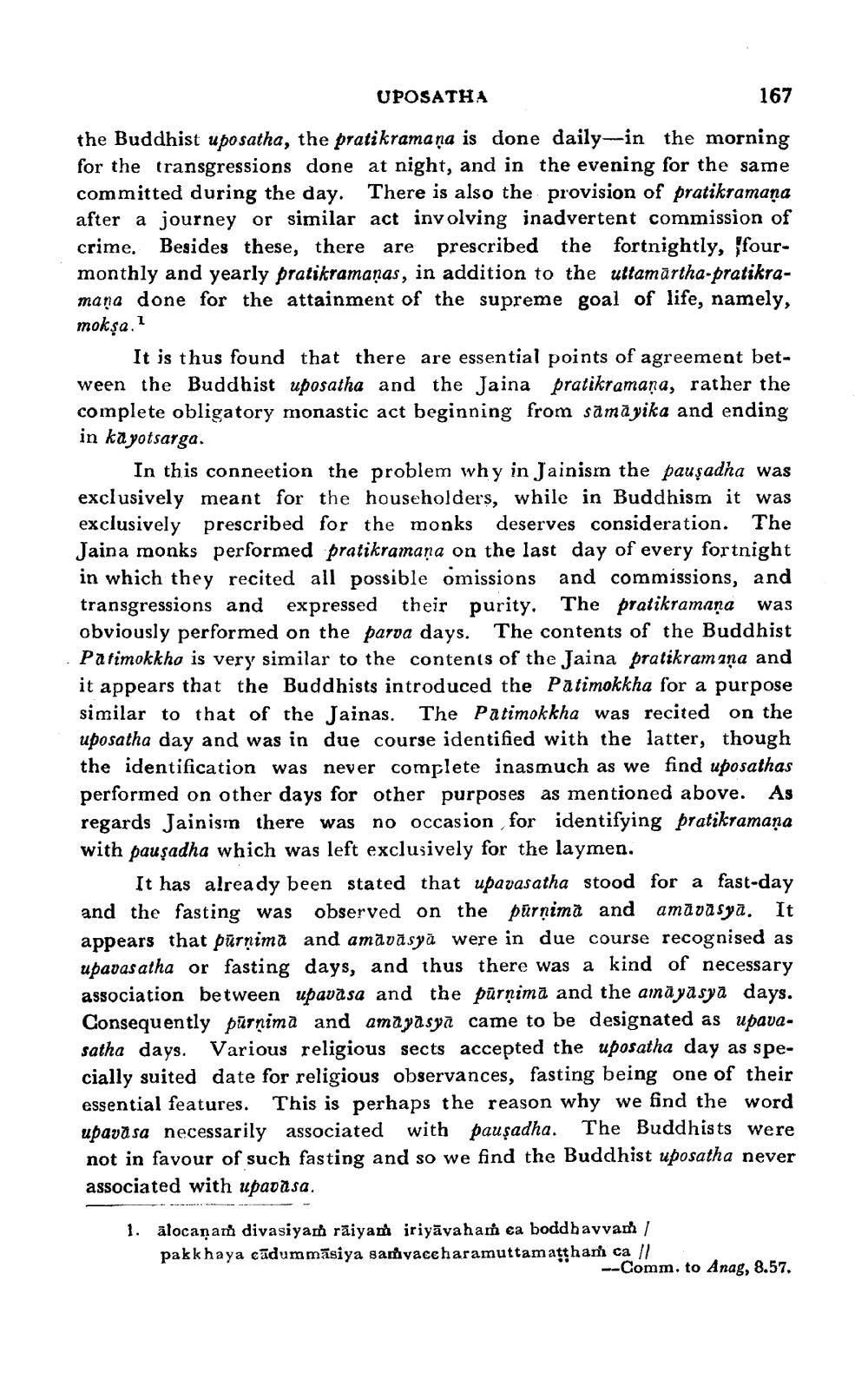________________
UPOSATHA
167
the Buddhist uposatha, the pratikramana is done daily-in the morning for the transgressions done at night, and in the evening for the same committed during the day. There is also the provision of pratikramana after a journey or similar act involving inadvertent commission of crime. Besides these, there are prescribed the fortnightly, fourmonthly and yearly pratikramaņas, in addition to the uttamartha-pratikramana done for the attainment of the supreme goal of life, namely, mokṣa. 1
It is thus found that there are essential points of agreement between the Buddhist uposatha and the Jaina pratikramaṇa, rather the complete obligatory monastic act beginning from samayika and ending in kayotsarga.
In this connection the problem why in Jainism the pausadha was exclusively meant for the householders, while in Buddhism it was exclusively prescribed for the monks deserves consideration. The Jaina monks performed pratikramana on the last day of every fortnight in which they recited all possible omissions and commissions, and transgressions and expressed their purity. The pratikramana was obviously performed on the parva days. The contents of the Buddhist Patimokkho is very similar to the contents of the Jaina pratikramana and it appears that the Buddhists introduced the Patimokkha for a purpose similar to that of the Jainas. The Patimokkha was recited on the uposatha day and was in due course identified with the latter, though the identification was never complete inasmuch as we find uposathas performed on other days for other purposes as mentioned above. regards Jainism there was no occasion for identifying pratikramana with pausadha which was left exclusively for the laymen.
As
It has already been stated that upavasatha stood for a fast-day and the fasting was observed on the purnima and amavasya. It appears that purnima and amavasya were in due course recognised as upavasatha or fasting days, and thus there was a kind of necessary association between upavasa and the purnima and the amāyāyā days. Consequently pūrṇima and amayasya came to be designated as upavasatha days. Various religious sects accepted the uposatha day as specially suited date for religious observances, fasting being one of their essential features. This is perhaps the reason why we find the word upava sa necessarily associated with pauṣadha. The Buddhists were not in favour of such fasting and so we find the Buddhist uposatha never associated with upavasa.
1. alocaņam divasiyam rãiyam iriyavaham ca boddhavvam / pakkhaya cadummasiya samvace haramuttamattham ca //
--Comm. to Anag, 8.57.




